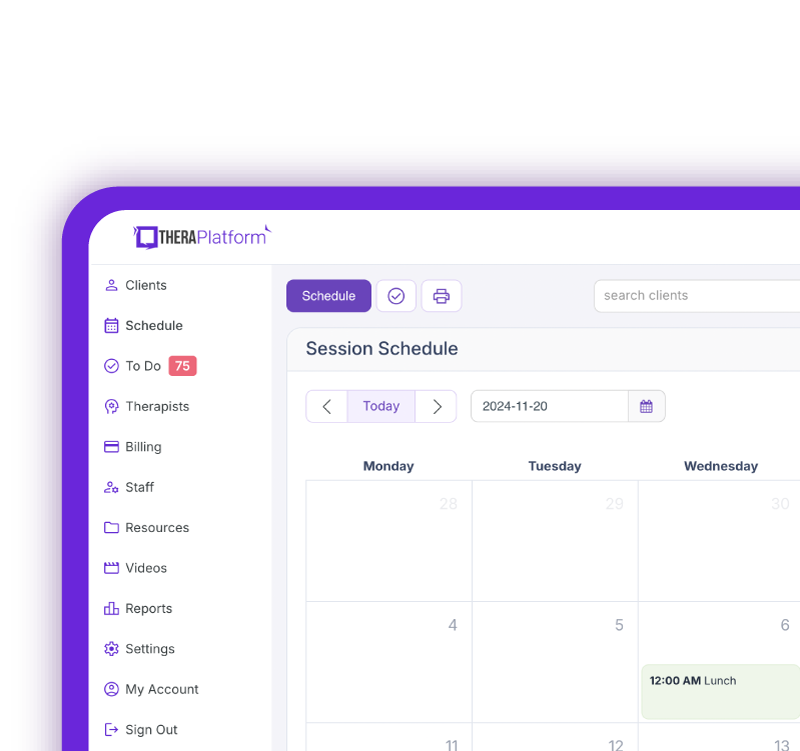ICD 10 code for speech delay

ICD 10 code for speech delay is one of the most common codes used by speech-language pathologists. Speech and language skills are expected to grow rapidly during a child’s first few years. In fact, according to the CDC, birth to three is the most intensive period of time that children develop these skills.
Summary
- Speech delay occurs when a child does not meet expected speech and language milestones, and early intervention is critical for improving outcomes due to the brain’s plasticity during early development.
- Common causes include developmental disorders, hearing loss, autism, and neurological conditions. Symptoms may involve limited vocabulary, delayed first words, and trouble following directions.
- Accurate use of ICD-10 codes such as F80.1 (expressive language disorder) or F80.2 (receptive language disorder) ensures proper documentation, billing, and communication among interdisciplinary teams. Enrolling in an insurance billing course for therapists can help providers enhance their knowledge.
- Speech therapy techniques such as play-based therapy, articulation exercises, and AAC tools can be tailored to the child’s needs, with family involvement playing a key role in therapy success and carryover. By leveraging an EHR like TheraPlatform for efficient documentation and claim submission, therapists can tackle document management with ease.
→ Click here to enroll in our free on-demand Insurance Billing for Therapists video course [Enroll Now]
Just as they do with other skills, every child develops speech and language skills at their own pace. Milestones like saying a first word, speaking in phrases, and understanding directions are expected to develop within a certain age range.
A speech delay occurs when a child does not acquire certain speech and language milestones by the expected age. When a child doesn’t appear to be meeting milestones for speech and language by the expected ages, it’s typically recommended that he or she sees a speech therapist.
Streamline your insurance billing with One EHR
- Claim batching
- Auto claims
- Automated EOB & ERA
- Real-time claim validation
- Real-time claim tracking
- Aging and other reports

The speech therapist will start by evaluating the child. If the SLP determines the child has a speech delay, ongoing therapy may be recommended to improve their skills.
Early detection and treatment of speech and language delays can result in more progress in therapy and better outcomes. Research supports this, and has shown a significant correlation between the age a child begins receiving Speech Therapy and their language outcomes at age 5.
One reason for this? The brain is highly plastic during a child’s first few years. That means it’s easily shaped, so a child has the ability to learn and gain new skills more easily while receiving speech therapy.
When working with a child who has a speech delay, attaching the accurate ICD-10 code to therapy notes and billing documentation can ensure compliance with HIPAA regulations and reimbursement from payers.
Follow along here for details on the causes and symptoms of a speech delay and the most accurate ICD code for speech delay to use. We’ll guide you through how speech therapy, as part of a family-centered, interdisciplinary team, can benefit a child with a speech delay.
Watch this video to learn common insurance billing struggles and solutions
→ Start My Free Trial
→ Start My Free Trial
Causes and symptoms of speech delay
Common causes of a speech delay include:
- Developmental speech and language disorder
- Hearing loss
- Oral motor disorder (abnormalities with the structure or function of the muscles of the mouth)
- Motor planning disorder (Childhood Apraxia of Speech)
- Autism
- Prematurity
- Environmental factors (such as lack of language stimulation)
- Neurological or genetic disorders (Cerebral Palsy, Down Syndrome, and others)
When determining whether a child has a speech delay, it’s important to look at his or her skills in various areas. This includes production of speech sounds, expressive language (how the child communicates) and receptive language (his or her understanding of words).
Common symptoms of a speech and language delay are:
- Delayed first words
- Limited vocabulary
- Difficulty with pronunciation
- Inability to form words
- Trouble understanding/following directions
- Difficulty putting words together
- Trouble answering age-appropriate questions
Practice Management + EHR + Telehealth
Manage more in less time in your practice with TheraPlatform

The best ICD 10 code for speech delay
SLPs need to know the most accurate ICD 10 code for speech delay when working with clients.
ICD-10 is the official coding system created by the CDC. Therapists use ICD 10 code for speech delay to match specific diagnoses. This helps ensure consistency among different health professionals. Using the incorrect ICD 10 code for speech delay on documentation can result in denials from insurance.
Using a more granular ICD 10 code for speech delay based on the client’s symptoms will help minimize denials.
See the list below for the best ICD 10 code for speech delay to align with how the present:
- R47.0: Speech disturbances, not otherwise classified
- F80.1: Expressive language disorder
- F80.2: Receptive language disorder
- F80.0: Phonological disorder
- F80.2: Mixed receptive-expressive language disorder
- F80.4: Speech and language development delay due to hearing loss
- F80.9: Developmental disorder of speech and language, unspecified (because this code is unspecified, it is recommended that SLPs use a different, specified ICD 10 code for speech delay if possible)
Healthcare records should reflect an accurate ICD 10 code for speech delay. This can help other professionals working with the child understand the nature of his or her speech delay.
Speech therapy for delayed speech
If a child has a speech delay, early intervention through speech therapy can improve his or her speech and language impairments.
Several specific speech and language impairments are associated with a speech delay, including:
- Articulation disorders
- Phonological disorders
- Expressive language disorders
- Receptive language disorders
- Fluency Disorders
- Auditory processing disorders
- Social/pragmatic disorders
- Childhood Apraxia of Speech
- Oral motor disorder
According to research, early identification and intervention for a speech delay can improve the child’s outcomes, in addition to improving adaptive skills and reducing behavioral issues.
To build speech and language skills during a critical time period and help prevent later communication and academic difficulties, early intervention for speech is crucial.
Treatment techniques for delayed speech
SLPs can utilize specific treatment strategies in speech therapy to improve skills in a child who has a speech delay. Treatment techniques include:
- Play-based therapy
- Includes strategies like modeling functional play and turn-taking
- Articulation therapy
- Verbal, visual, and tactile cues can be provided to teach the child to produce new sounds and more accurately articulate currently produced sounds.
- Language therapy
- Providing choices, expanding on utterances to encourage the child to produce phrases
- Augmentative and Alternative Communication (AAC)
- Using pictures or speech generating devices to facilitate communication.
Multiple studies have supported the idea that family engagement is a key component of early intervention services, including speech therapy. Families can help provide valuable insight to the therapist about the child’s skills, areas of difficulty, motivators, and learning style.
By actively participating in treatment sessions, parents can practice speech and language stimulation strategies while being coached by the SLP. Parents can then continue using these strategies during daily routines to improve the child’s progress and carryover.
Interdisciplinary care for delayed speech
According to the American Speech-Language and Hearing Association (ASHA), team collaboration from families and different professionals working with a child provides the opportunity to problem solve and obtain input from multiple perspectives.
Practice Management + EHR + Telehealth
Manage more in less time in your practice with TheraPlatform

An interdisciplinary team for a child who has a speech delay may consist of:
- Speech-language pathologist
- Pediatrician
- Occupational therapist
- ABA therapist
- Physical therapist
- Psychologist
- Developmental pediatrician
- Audiologist
- Early interventionist/Infant-toddler specialist
These professionals can develop a coordinated treatment plan that includes functional goals that are specified to the child’s overall needs making the correct use of the proper ICD 10 code for speech delay even more important as it may be referenced by other professionals.
Language delays are the most common types of developmental delays. SLPs and parents should be familiar with the signs and symptoms of speech and language delays. Early identification and intervention can lead to more progress.
SLPs play an integral role on a multidisciplinary, family-centered team that should be developed to treat a child with a speech and language delay. By using the correct ICD 10 code for speech delay in documentation and billing, the SLP can ensure reimbursement for services.
Streamline your practice with One EHR
- Scheduling
- Flexible notes
- Template library
- Billing & payments
- Insurance claims
- Client portal
- Telehealth
- E-fax

Resources
TheraPlatform is an all-in-one EHR, practice management, and teletherapy software with AI-powered notes built for therapists to help them save time on admin tasks. It offers a 30-day risk-free trial with no credit card required and supports different industries and sizes of practices, including speech-language pathologists in group and solo practices.
More resources
- Therapy resources and worksheets
- Therapy private practice courses
- Ultimate teletherapy ebook
- The Ultimate Insurance Billing Guide for Therapists
- The Ultimate Guide to Starting a Private Therapy Practice
- Mental health credentialing
- Insurance billing 101
- Practice management tools
- Behavioral Health tools



